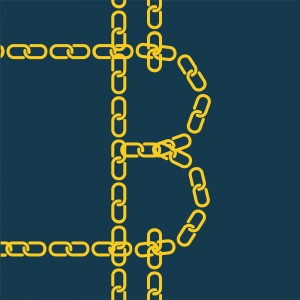 From using an online business name generator to refining analytics which measure the effectiveness of social media marketing, every business owner knows the importance of using technology to improve efficiency. The healthcare industry, however, has historically lacked the tools and approaches for efficient data management.
From using an online business name generator to refining analytics which measure the effectiveness of social media marketing, every business owner knows the importance of using technology to improve efficiency. The healthcare industry, however, has historically lacked the tools and approaches for efficient data management.
Information centralization causes problems.
According to Marketplace, 90 percent of doctors now use electronic patient records. The problem is each doctor’s office uses a different system that might not be connected to any other doctor’s office, especially if they’re affiliated with different groups or hospitals.
To share information, the staff in one office must print out and fax the records, and the staff in the other office must then re-scan them. In any other industry, a fax machine would be considered an antique, but in a medical emergency, it’s all that connects the attending physician with the information needed to save a patient’s life. Patients are endangered on a much larger scale when ransomware attacks target hospitals. Hackers lock hospitals out of their data systems, knowing administrators will likely pay the ransom quickly rather than risk their patients’ safety.
When medical records like X-rays can’t be accessed, patients or their insurance companies have to pay for repeat scans. If the patient herself wants a hard copy of her records, she may have to pay a fee and wait up to a month. Many patients record data using wearable fitness trackers, but if a cardiologist needs to evaluate their heart function, none of this data would be usable, and a different set of costly monitoring equipment would be required.
When physicians encourage patients to take responsibility for their health but remain the gatekeepers of their health information, the breakdown in communication causes patients to feel isolated and unsupported. Consequently, patients struggle to manage chronic conditions, leading to complications more difficult and expensive to treat. According to the CDC, of the $3.2 trillion the US spends on healthcare every year, 90 percent goes toward treating preventable diseases.
Blockchain could be the solution.
Originally developed for cryptocurrencies like Bitcoin, blockchain technology is a decentralized ledger system. Because the network has no single point of origin and every transaction becomes part of the entire network, it’s highly resistant to both cyber attacks and fraud. With its capacity to store massive amounts of data, blockchain’s applications extend well beyond the financial sector.
Nano Vision has already used the blockchain in the medical field. Their white paper states, “Today, the model driving scientific advancement is broken” because “critical data is siloed in individual institutions and governments around the world.” Centralization obstructs medical research on major health threats as it does patient records. Creating a new paradigm, the Nano Vision platform collects real-time molecular data and makes it available to scientists worldwide, so that they can build on one another’s successes and don’t waste time duplicating failed experiments.
It’s the next stage of information evolution.
If sharing scientific data via the blockchain can aid in developing cures for deadly diseases, sharing patient information using the same technology could aid in the prevention of chronic diseases. “Eighty percent of heart disease, stroke, diabetes are preventable, and forty percent of all cancers,” says MintHealth CEO, Dr. Samir Damani, in a speech at the Connected Health Conference. “These are not diseases that are going to be fixed by antibiotics or vaccines, these are behavioral conditions that need to move patients from passive to empowered and proactive. The only way to do that is by giving them access to data.”
If a patient’s medical records were on the mint health blockchain, he could view them at any time using an app on his smartphone or computer and a passkey. He would be the curator of his information and would use the passkey to give his doctors and anyone else permission to access it. When one doctor updated his information, every other health professional would see the changes in real time.
It pays to get in shape.
Based on the Transtheoretical Model of Behavioral Change, MintHealth’s platform empowers patients to make healthy lifestyle changes through a combination of education, self-tracking, goal setting, gamification, and social support. Articles provide information while logs record biometric data and progress toward goals. The interactive format, with frequent text messages from a health coach, keeps the patient engaged.
Patients who quit smoking, swear off alcohol and fried foods, and drag themselves out of bed for their morning workouts sometimes feel they’ve given up all their pleasures and inherited a few extra pains. In order to maintain lifestyle changes long enough to reap long-term benefits, they need a tangible short-term reward. Platforms can use their own form of cryptocurrency to reward patients for every positive step they take.
Users can redeem tokens to save money on insurance premiums, prescription co-pays, gym memberships, or health-related online purchases. As an additional incentive for tracking their activity, pharmaceutical or medical research companies may offer patients tokens in exchange for the data they’ve collected.
The medical industry benefits, too.
Simply put, healthier patients are cheaper to treat and cheaper to insure. Relieved of the burden of copying, faxing, scanning, and waiting for medical records to be faxed from elsewhere, doctors and their office staff can spend more time with their patients. Because the blockchain facilitates secure and anonymous sharing of health data, pharmaceutical and medical research companies will have a more efficient way to recruit participants for research studies, creating the potential for greater medical breakthroughs.
Are you optimistic about the changes blockchain technology could bring to the healthcare industry? Share your thoughts in the comments.